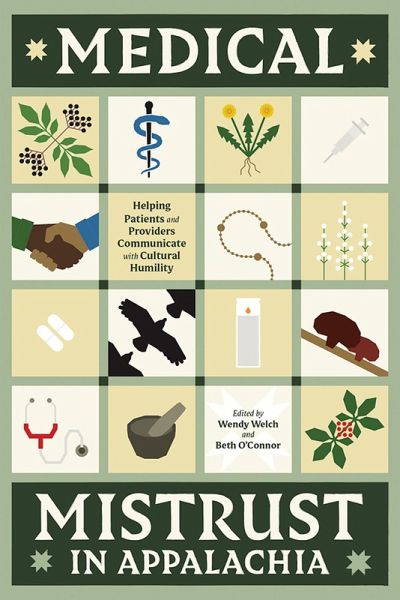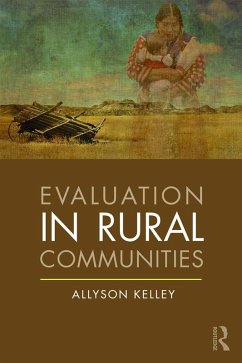
Medical Mistrust in Appalachia (eBook, ePUB)
Helping Patients and Providers Communicate with Cultural Humility
Redaktion: Welch, Wendy; O'Connor, Beth
Erscheint vor. 17.03.26
15,95 €
inkl. MwSt.
Unser Service für Vorbesteller - dein Vorteil ohne Risiko:
Sollten wir den Preis dieses Artikels vor dem Erscheinungsdatum senken, werden wir dir den Artikel bei der Auslieferung automatisch zum günstigeren Preis berechnen.

PAYBACK Punkte
8 °P sammeln!
Clinicians and academics on improving medical communications in Appalachia.According to the National Institutes of Health, about 25 percent of the American population does not trust doctors and medical professionals. Focusing on rural Appalachia specifically, Wendy Welch, PhD, MPH, and Beth O'Connor, Med, discuss the region's complex relationships with modern medicine and its institutions in this important collection. Offering multiple academic and clinical perspectives in thirteen unique essays, Medical Mistrust in Appalachia explores the history of this skepticism toward healthcare, analyzin...
Clinicians and academics on improving medical communications in Appalachia.
According to the National Institutes of Health, about 25 percent of the American population does not trust doctors and medical professionals. Focusing on rural Appalachia specifically, Wendy Welch, PhD, MPH, and Beth O'Connor, Med, discuss the region's complex relationships with modern medicine and its institutions in this important collection. Offering multiple academic and clinical perspectives in thirteen unique essays, Medical Mistrust in Appalachia explores the history of this skepticism toward healthcare, analyzing the region's relationship to medical infrastructure and the relationship between medicine and marginalized communities.
This volume fills a gap in scholarship by elevating the voices of practitioners and wrestling with the realities of medical mistrust as a cultural phenomenon-one born from a system that has historically struggled to center the safety and health of Appalachian communities. Presenting medical mistrust as a justifiable reaction in the interest of self-preservation, Welch and O'Connor address Appalachian stereotypes while confronting the ways medical institutions have fostered environments of mistrust and inequality. Importantly, Welch and O'Connor conclude with a discussion of how medical infrastructure and Appalachia can move forward together. Medical Mistrust in Appalachia is a must-read for rural healthcare professionals, medical students, and readers interested in Appalachian culture.
According to the National Institutes of Health, about 25 percent of the American population does not trust doctors and medical professionals. Focusing on rural Appalachia specifically, Wendy Welch, PhD, MPH, and Beth O'Connor, Med, discuss the region's complex relationships with modern medicine and its institutions in this important collection. Offering multiple academic and clinical perspectives in thirteen unique essays, Medical Mistrust in Appalachia explores the history of this skepticism toward healthcare, analyzing the region's relationship to medical infrastructure and the relationship between medicine and marginalized communities.
This volume fills a gap in scholarship by elevating the voices of practitioners and wrestling with the realities of medical mistrust as a cultural phenomenon-one born from a system that has historically struggled to center the safety and health of Appalachian communities. Presenting medical mistrust as a justifiable reaction in the interest of self-preservation, Welch and O'Connor address Appalachian stereotypes while confronting the ways medical institutions have fostered environments of mistrust and inequality. Importantly, Welch and O'Connor conclude with a discussion of how medical infrastructure and Appalachia can move forward together. Medical Mistrust in Appalachia is a must-read for rural healthcare professionals, medical students, and readers interested in Appalachian culture.
Dieser Download kann aus rechtlichen Gründen nur mit Rechnungsadresse in A, D ausgeliefert werden.












